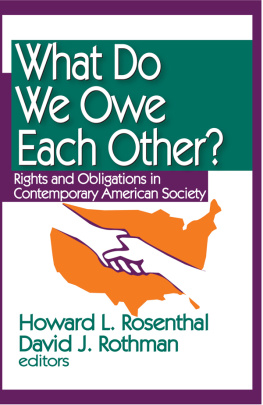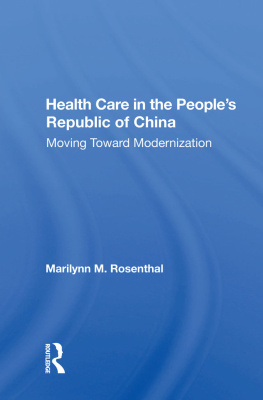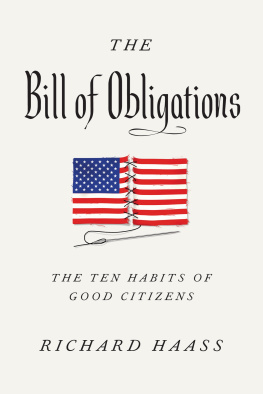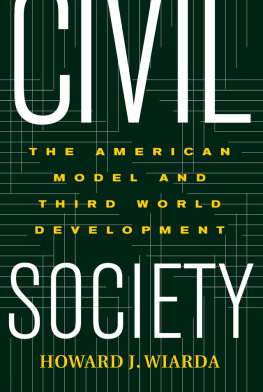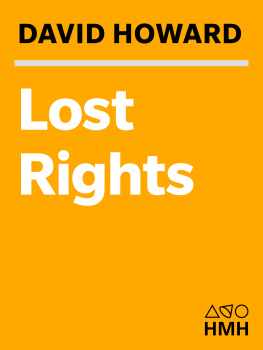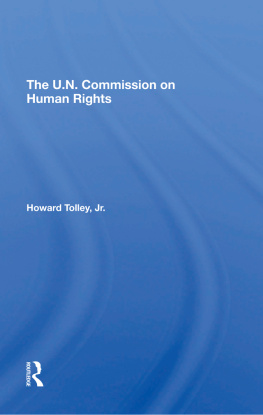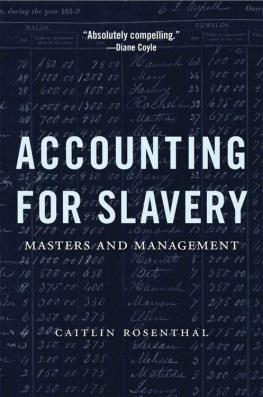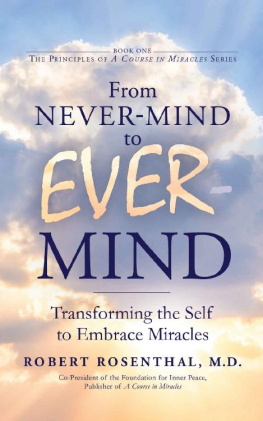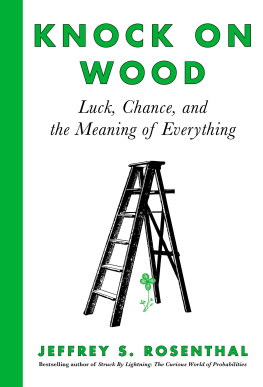What Do
We Owe
Each Other?
What Do
We Owe
Each Other?
Right and Obligations in
Contemporary American Society
Howard L. Rosenthal
David J.Rothman
editors
First published 2008 by Transaction Publishers
Published 2017 by Routledge
2 Park Square, Milton Park, Abingdon, Oxon OX14 4RN
711 Third Avenue, New York, NY 10017, USA
Routledge is an imprint of the Taylor & Francis Group, an informa business
Copyright 2008 by Taylor & Francis.
All rights reserved. No part of this book may be reprinted or reproduced or utilised in any form or by any electronic, mechanical, or other means, now known or hereafter invented, including photocopying and recording, or in any information storage or retrieval system, without permission in writing from the publishers.
Notice:
Product or corporate names may be trademarks or registered trademarks, and are used only for identification and explanation without intent to infringe.
Library of Congress Catalog Number: 2007045408
Library of Congress Cataloging-in-Publication Data
What do we owe each other? : rights and obligations in contemporary
American society / Howard L. Rosenthal and David J. Rothman, editors.
p. cm.
Papers originally presented at a September 2006 meeting at Open
Society Institute as part of its 10th anniversary celebration.
ISBN 978-1-4128-0723-4
1. United StatesSocial policyCongresses. 2. Political obligation
Moral and ethical aspectsUnited StatesCongresses.. 3. Solidarity
United StatesCongresses. 4. Social contractCongresses.
I. Rosenthal, Howard, 1939- II. Rothman, David J.
HN59.2.W47 2008
323.6'50973--dc22
2007045408
ISBN 13: 978-1-4128-0723-4 (hbk)
We are delighted to be able to acknowledge the generous financial and intellectual support we have received. The Open Society Institute and the Institute on Medicine as a Profession funded the project. The viewpoints expressed by the authors, of course, are their own; the two organizations had no influence on the content.
All the chapters were initially presented as papers at a September 2006 meeting at OSI as part of its 10th-anniversary celebration. At this meeting, contributors had the benefit of perceptive commentaries by academics and policy analysts. We would like to express our appreciation to Aryeh Neier and David Rieff for providing a cross-national context for thinking about mutual obligations. Our gratitude to Adam Berinsky and Geoffrey Canada for their responses to the Newman and Jacobs paper; Robert Erikson and Ruth Wooden for the Popkin paper; Andrew Stern for the Gourevitch paper; Helen Ladd for the Corcoran, Romer, and Rosenthal paper; Deborah Stone and Viviana Zelizer for the Rothmans paper; and Jeff Manza and Marc Mauer for the Western paper.
The administrative burdens associated with both the conference and the publication were met with energy and skill by Jeannie Chung. When Jeannie left in the summer of 2007 to enter law school, the duties passed to Carrie Horbatuk, who ably fulfilled them.
Irving Lewis Horowitz had the idea of turning the papers into a book and we are hopeful that the final product meets his expectations.
Contents
Howard L. Rosenthal and David J. Rothman
Katherine S. Newman and Elisabeth Jacobs
Samuel L. Popkin
Peter Gourevitch
Sean P. Corcoran, Thomas Romer, and Howard L. Rosenthal
David J. Rothman, Natassia Rozario, and Sheila M. Rothman
Gara LaMarche
Bruce Western
Index
Howard L. Rosenthal and David J. Rothman
The idea of our exploring the subject of what do we owe each other emerged from four different but ultimately closely related considerations. The first, and the one that preoccupied Howard, was the dramatic increase in economic inequality in the United States over the past twenty years. Income distribution is now as skewed as it was in the heyday of the robber barons. The top 25 hedge fund managers on Wall Street earned in one year as much as all 80,000 New York City schoolteachers did in three. The second, and the one that drove Davids interest, was more subjective and less susceptible to quantitative measures. It was a conviction that most Americans were, bluntly put, selfish. Ready to do everything possible to satisfy their own and their familys needs, they were utterly indifferent to the well-being of others. Little or nothing was owed to strangers, whether they were fellow Americans or immigrants, documented or undocumented. Third, it appeared that both public and private enterprises did very little to promote or satisfy mutual obligations. Tax policy at the state or federal level, and benefit and pension policies at the corporate level, did not push back inequalities or overcome indifference. Neither in the polity nor in the economy was a sustained and systematic effort made to promote the commonweal over individual self-interest. Finally, these tendencies most adversely affected minorities, whether they were persons of color, immigrants, or the economically or physically disadvantaged. We were all on our ownand if some could handle the consequences, many could not.
An inquiry into mutual obligations does not lend itself to drawing tight intellectual boundaries, and accordingly, the essays that follow pursue very different subject matters with a variety of approaches. The book opens with Katherine S. Newman and Elisabeth Jacobs summarizing their extensive analysis of public attitudes toward redistributive programs during the New Deal area. Although many scholars see this period, building on the legacy of the Progressive movement, as witnessing a significant expansion of citizens sense of responsibility for the welfare of others, Newman and Jacobs offer a much more complicated picture. Their research is based on public opinion poll data collected over the 1930s. Surprisingly, they find a high level of public hostility to federal relief programs and to old age payments. The public supported payments to those of working age only if the payments were linked to work and to the elderly only if payments were tied employment history with contributions to the Social Security system. By the same token, the public had little sense of obligations to immigrants, blacks, and non-working women. In some ways, since the times were so hard, citizens lowered their levels of generosity.
The contribution of Newman and Jacobs raises the question of why the New Deal era is remembered otherwise, as a period when Americans had a high sense of social obligation. The authors emphasize that working-class white males did make great strides and enjoy benefits, but even this accomplishment does not appear to reflect a deep change in public opinion. The crucial influence on policy, the authors suggest, was the overwhelming Democratic majorities in Congress that emerged from Depression conditions. In effect, the Newman and Jacobs argument prefigures the limits on public support for redistribution today.

